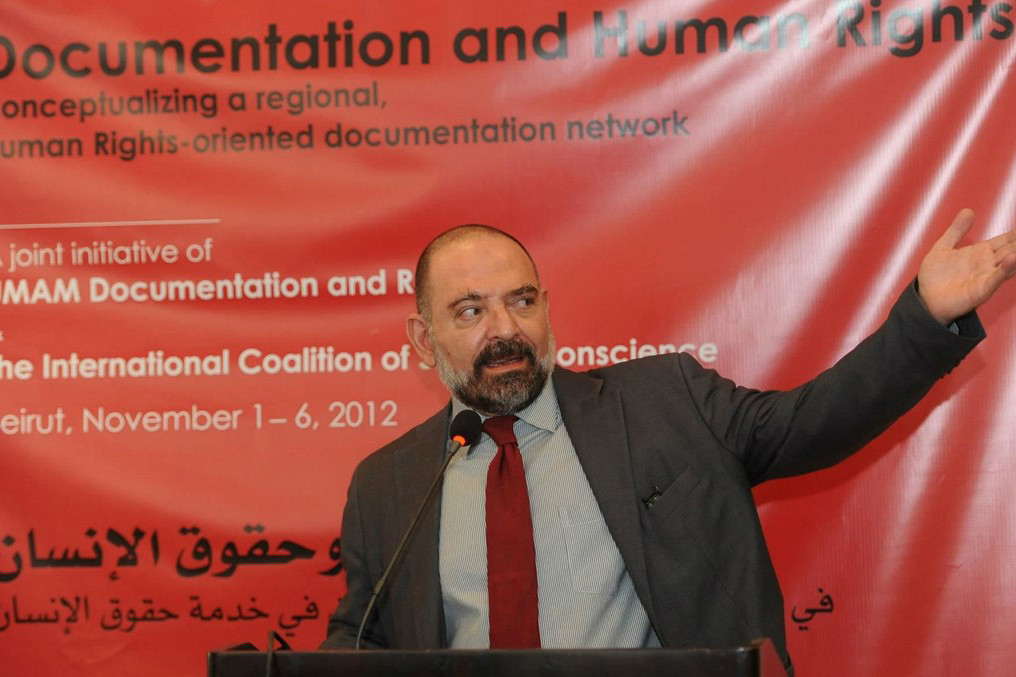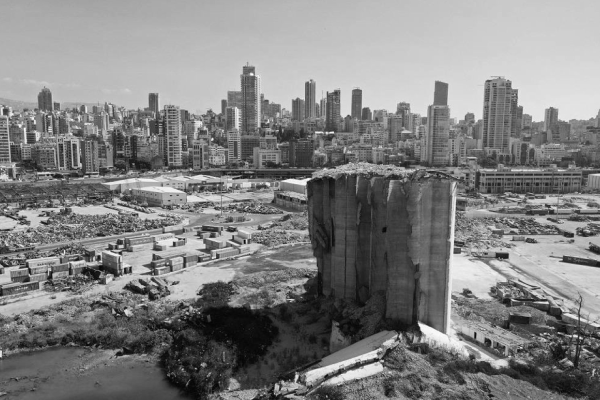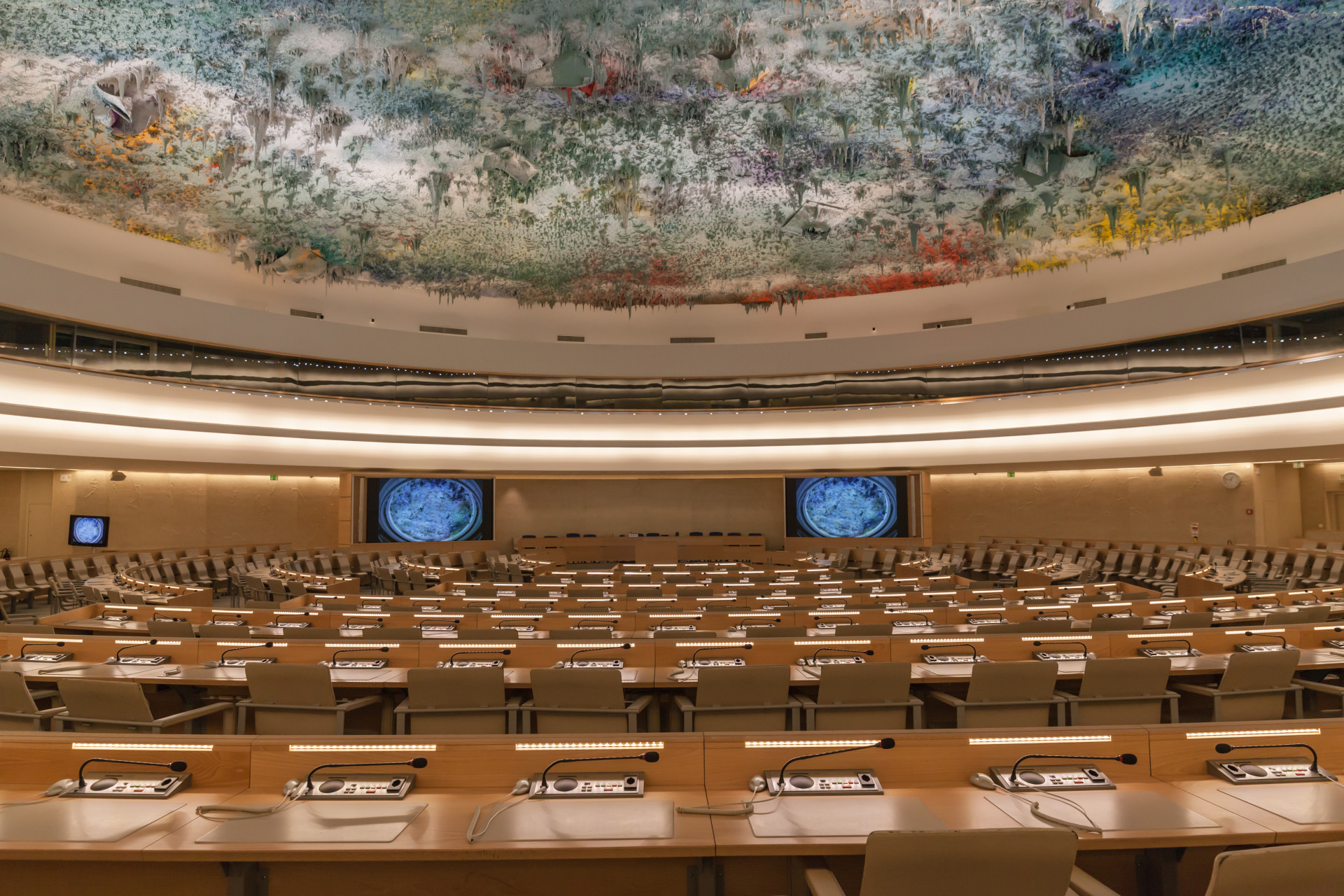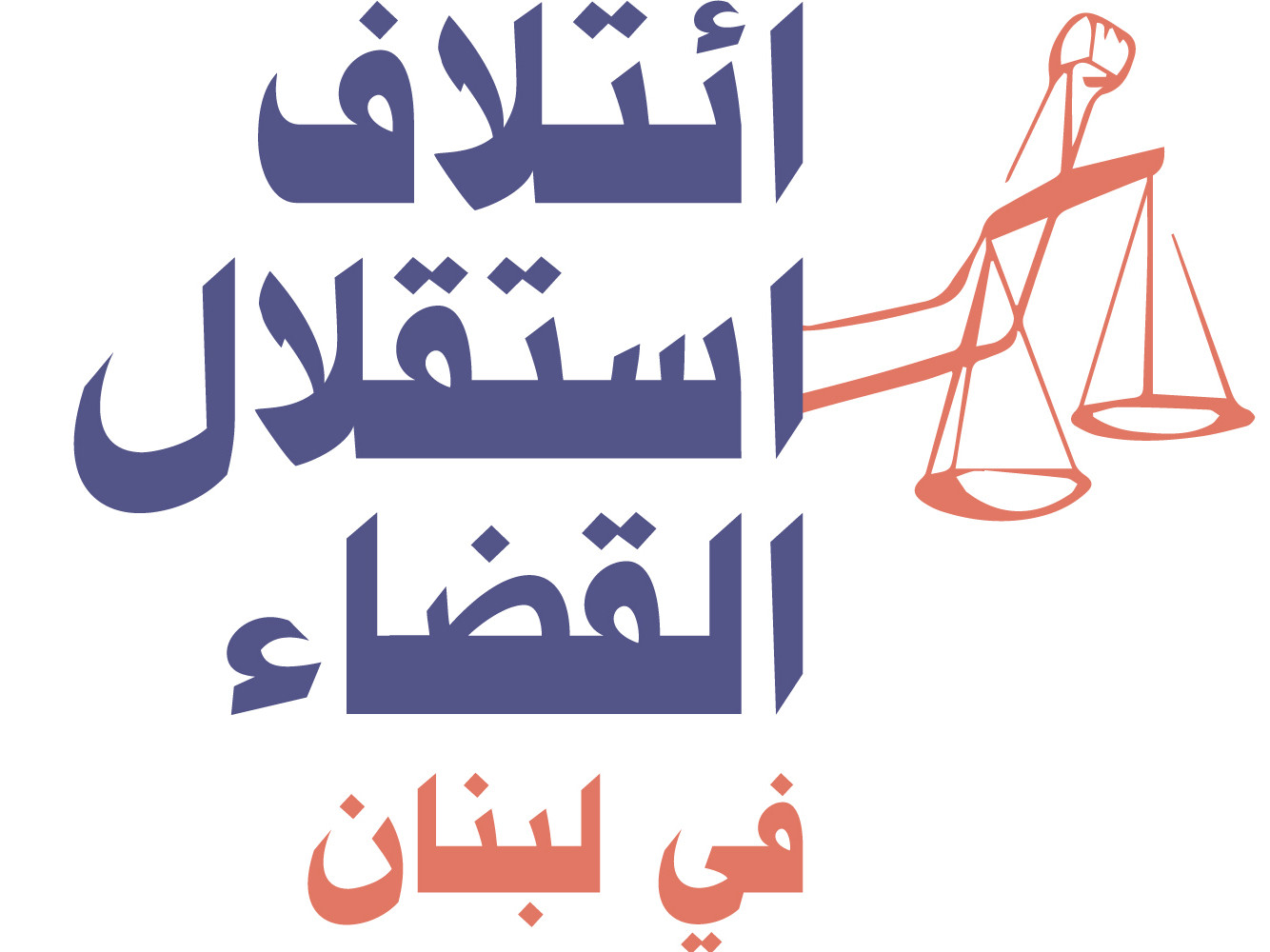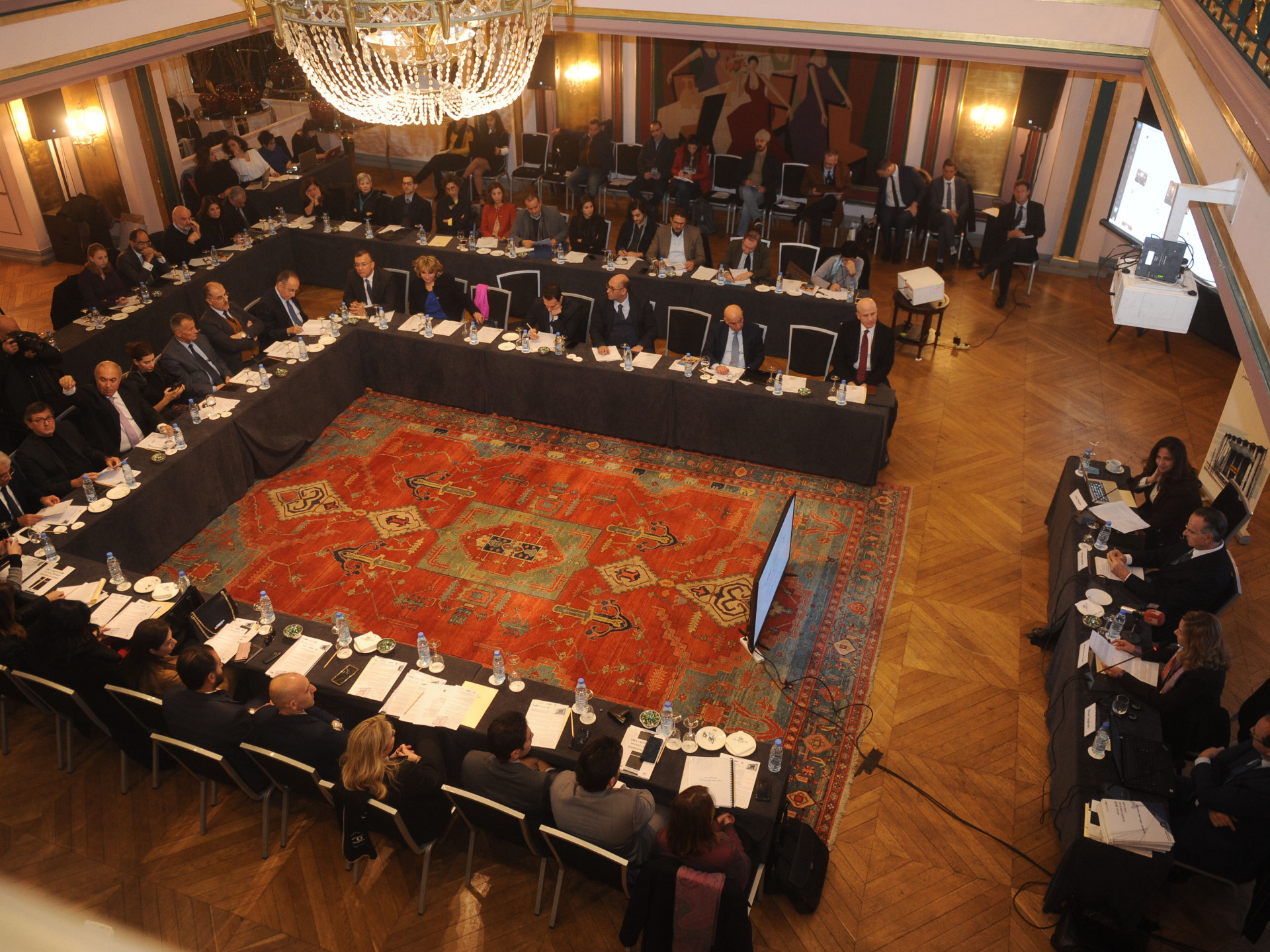It is with immense sorrow and regret that we were informed of the assassination of author, director and political activist Lokman Slim yesterday. While his political views took centre stage in the debate, very few people recalled his significant contributions at the rights and cultural levels, most notably his co-direction of the two films Massaker (on the Sabra and Shatila Massacre) and Tadmor (on torture in Syrian prisons). Slim also conducted valuable research on missing persons, the forcibly disappeared and refugees, on the politicization and undermining of judicial performance in the major crimes that took place in Lebanon in the past three decades, as well as on the Military Court. UMAM Documentation & Research, co-founded by Slim, is also currently among the major documentation and knowledge production institutions in Lebanon.
That said, Slim’s assassination urges us to reiterate the following:
First – The assassination is the most recent event in a series of assaults against the freedom of political action in Lebanon
Slim’s assassination took place following a series of violent assaults that have affected, to varying degrees, the forces that oppose the current system, particularly during and after the 17 October Revolution. The purpose of these assaults was twofold: First, they sought to suppress demonstrations and political protest, culminating in the violent attack against hundreds of protesters mourning the victims of the Beirut Port explosion on August 8, 2020, as well as in the death of at least three people during protests in Tripoli (Ahmad Toufiq, Fouad al-Samman and, most recently, Omar Tiba). The second form that these assaults have taken – and it is by no means less serious than the first – is the targeting of specific individuals and the attempt to intimidate them through personal attacks. This was the case of journalist Mohamad Zbeeb and attorney Wassef al-Harakeh, two of the most prominent figures in the revolution. Others were plainly executed in order to eliminate them and intimidate other opposition figures, as was the case of activist Alaa Abou Fakhr. Such assaults took place across Lebanon, from Tripoli in the North to the country’s southernmost parts and everywhere in between, including Beirut and Mount Lebanon. What is worse is that none of the attackers were held accountable, despite being well-known in some instances. While we cannot ascertain that these assaults are all linked and part of the same agenda, based on our firm belief in the presumption of innocence, their increased frequency makes it clear that those involved in political action and those who voice their opposing views are becoming more and more exposed to the risk of assassination and bloodshed. Alas, such acts are but the final nail in the coffin of the Lebanese democratic system. As the ruling authority continues to lose its legitimacy and its ability to govern, these risks are likely to increase, which will lead to more violence on the part of the ruling authority in an attempt to solidify the foundations of its rule.
Second – The assassination takes place amid an environment of legitimate distrust of judicial institutions
The assassination of Lokman Slim provides further proof that the Lebanese judicial system is incapable of providing robust answers to the public opinion with regard to these violent assaults, thereby legitimizing the general public’s distrust of judicial institutions. That is due to the power-sharing arrangements adopted by the ruling powers to fill “sensitive” and pivotal positions in the judiciary, most notably Public Prosecutors and investigative judges. Upon examining how power is shared in these positions, one not only notices that the judiciary is subjugated and laid open to sectarian policies, but also that each political power insists on making their share of appointments in their own areas of influence, thereby turning centres of justice into centres of influence.
Further exacerbating this distrust are the public claims that the Public Prosecutor at the Court of Appeal in the South, Judge Rahif Ramadan, who supposedly represents public interest (i.e. society) in the case of Lokman Slim’s assassination and who supervises the investigation and evidence gathering procedures, is linked to Parliament Speaker Nabih Berri. This brings back to mind the numerous brutal assaults committed by Berri’s supporters and by members of the Parliament Police, operating under his direct supervision, against his opponents in the past year without any real accountability, from Adloun in the South to the areas in the vicinity of the Parliament, the Council for South Lebanon and the Ain al-Tineh headquarters. This begs the question: How can a judicial figure that is organically linked to a politician, who has time and again openly attacked his political rivals, be entrusted with investigating Lokman Slim’s assassination? What grants further legitimacy to this distrust – without undermining the presumption of innocence or pre-empting the investigation – is the fact that the crime took place in an area under the influence of the Amal Movement and Hezbollah, of which Slim was a vehement critic. In light of this reality, we fear that the evidence could be concealed and the investigation could be misled or stripped of all substance, in an attempt to cover up the truth and have Slim die in vain.
These fears once again prove to us the severity of the approach adopted by the ruling powers to subjugate the judiciary and undermine its autonomy, thereby eroding all trust in the judiciary and its ability to uncover the truth. This has also given free rein to unfounded political accusations, which could easily be exploited to stir up strife, and dissipating judicial sovereignty. There is, perhaps, no clearer proof of this distrust than the fact that, in many instances, victims have demanded that an international investigation take place immediately. The judicial sovereignty of the State is never a given; rather, it must be built through the establishment of strong and independent judicial institutions.
Therefore, we offer our deepest condolences to Lokman Slim’s family and friends, and we hereby demand the following:
- Violence against unarmed protesters and political opponents must not be normalized, and it must be considered as a heinous criminal act that cannot be justified under any circumstances – particularly under pretexts such as defending a political leader’s dignity, justifying the oversensitivity of their followers to attacks on their dignity or preserving a political agenda. We therefore call upon all democratic forces to unify their ranks to follow up on such assaults in order to intensify pressure to hold the perpetrators, as well as those who order the commission of acts of violence and murder, accountable.
- The case of Slim’s assassination must be referred, without delay and in accordance with the legal procedures in place, from the South to the capital Beirut, given the legitimate distrust of the individuals occupying key judicial positions in the South and their suspected links with the influential forces in that region. An investigative judge appointed in Beirut and renowned for their neutrality and integrity must be entrusted to lead the investigation in the case.
- All heads of Prosecution offices and judicial investigation units, in both the civilian and military judiciary, must be removed from their position, and judges must be called upon to run for these key positions, in order to appoint professional, impartial and independent individuals as a first step to regain the public’s trust in judicial institutions.
- The draft law on Judicial Independence and Transparency must be promulgated without any prejudice to the guarantees of judicial independence therein in order to solidify judicial sovereignty. The ruling political powers shall be held accountable for any delay in this regard. The longer these powers obstruct the promulgation of judicial independence laws, the more they expose the entire country to the risk of “necrosis” in its political system.

